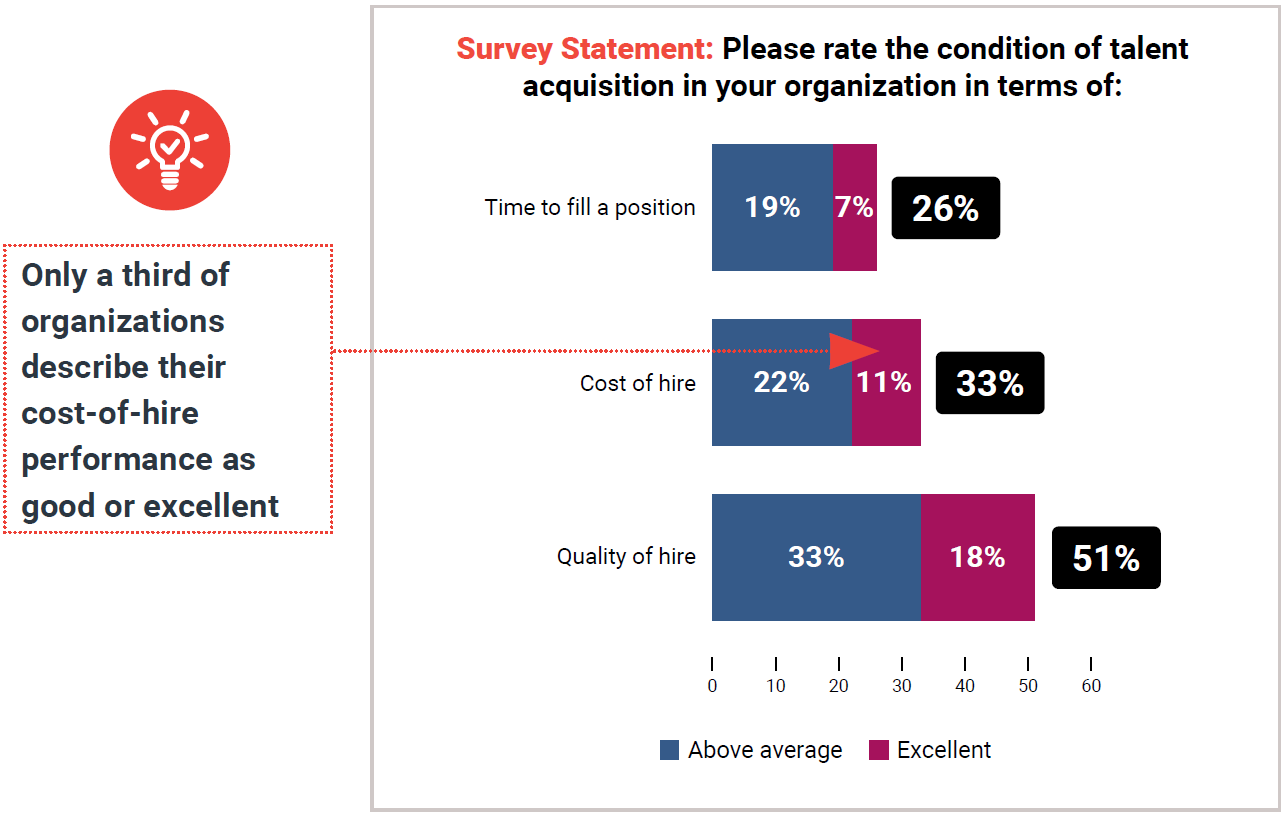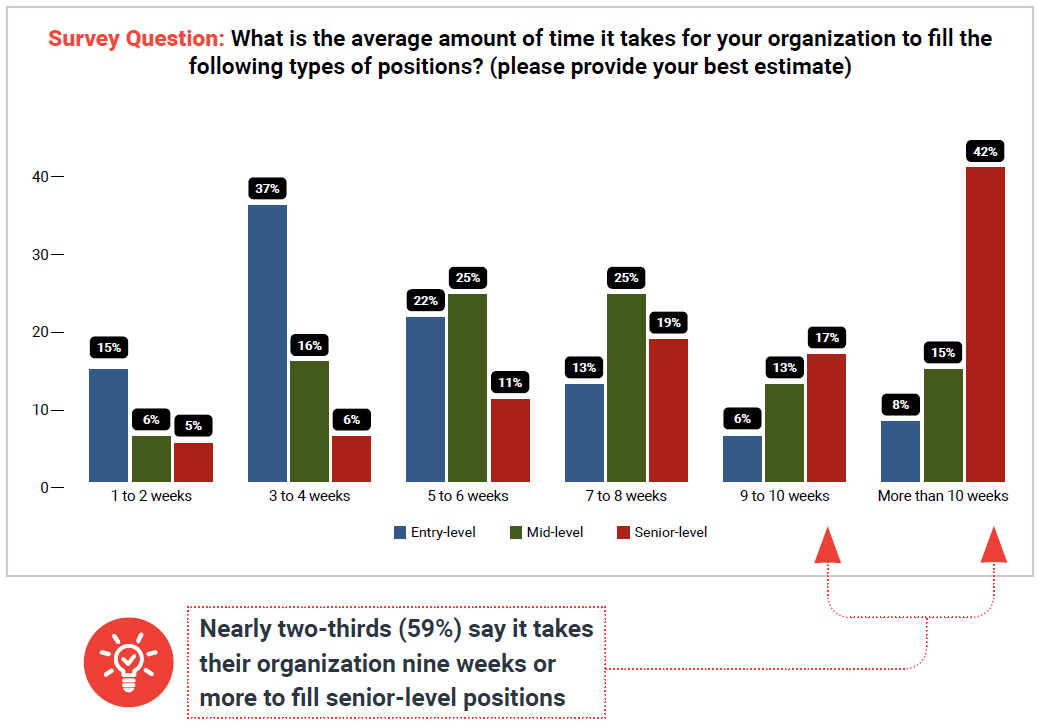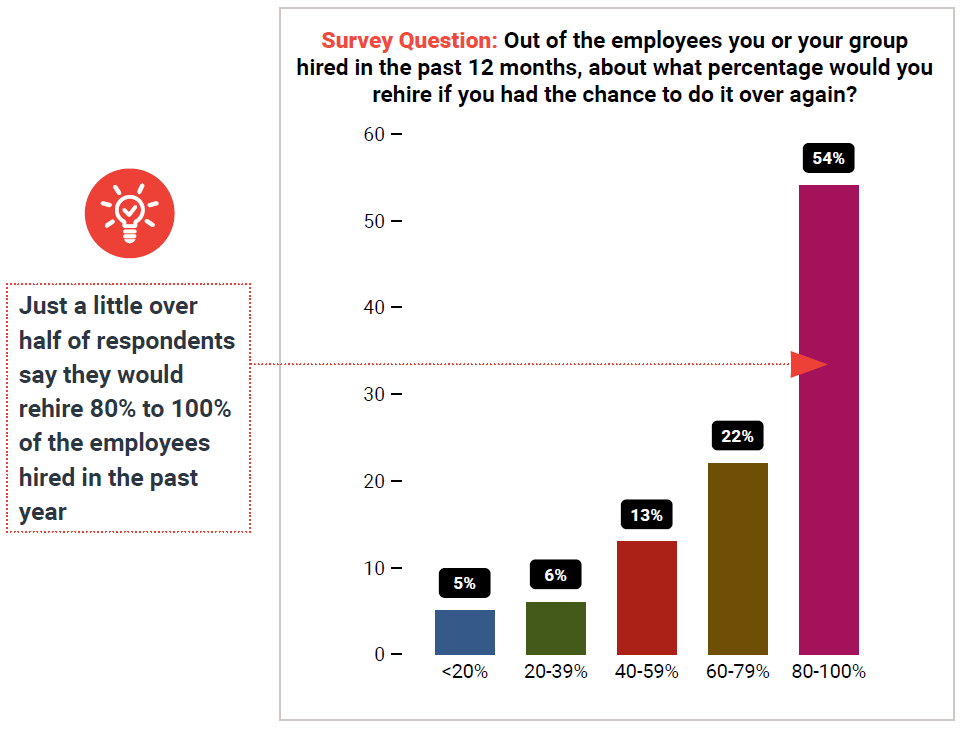Most organizations struggle with TA, especially with the time it takes to fill a position
Only about half of organizations report that the quality of their hires is above average or excellent. The news is even grimmer in other areas. Only a third say their ability to control cost of hires is above average or excellent, and a mere 26% give their organizations high marks in the area of time to fill a position.

A variety of factors could contribute to this lag in hiring time. Currently, many organizations are in a battle for talent, some even offering signing bonuses and perks to differentiate them from the competition. Also, HR departments have had a lot on their plate due to pandemic-response tasks and may be slower in scheduling interviews or fulfilling other necessary steps in the recruitment and hiring process.
Impact of organization size
Respondents in larger organizations are less likely to say their organization is excellent in any of the three talent acquisition metrics provided. For example, 25% of respondents in small organizations and 22% of respondents in mid-sized organizations rate their quality of hire as excellent. By comparison, just 11% of respondents in large organizations say the same.
About half (52%) of organizations can fill entry-level positions in four weeks or less
Entry-level roles can typically be filled in less than four weeks (52%), whereas senior-level roles typically take more than nine weeks to fill (59%).
It is logical that senior level positions take longer to fill. These positions may have more rounds of interviews to ensure qualification as well as culture fit. High-profile positions may also need approval from seniorlevel employees, such as the CEO, which can add an extra layer to the hiring process.
While situations vary between organizational circumstances, this data provides a benchmark to help HR professionals estimate whether the time their organization takes to fill positions is below or above average. For example, 8% say that it takes more than 10 weeks to fill an entry level position, which is much longer than the average. Consider looking at the hiring process and identifying where the bottlenecks and roadblocks are to streamline the process in your organization.
Impact of organization size
The larger the organization, the longer it takes to fill roles. For example, very few large organizations are able to fill senior-level roles in one to four weeks (2%), whereas 16% of mid-sized and 17% of small organizations can do so in the same timeframe. We see a similar trend in hiring entry-level workers. Most small and mid-sized organizations can hire for an entry-level position in one to four weeks (57% and 60% respectively) whereas only 41% of large organizations can do the same.
The proportion of regrettable hires is alarmingly high in some organizations
We wanted to dive deeper to assess quality of hire and so we asked respondents to write in how many of their new hires in the past year they would hire again if they had the chance to do it over again. In other words, how many new hires were "regrettable hires"? While no hiring process will get it right 100% of the time, it would be fair to expect 80% or more of the new hires to be good choices. However, only half of organizations have that level of success.
Just over one-fifth (22%) say 60% to 79% of new employees are worthy of being rehired (in other words, 21% to 40% of new hires were regrettable hires). Worryingly, 24% say they would rehire fewer than 60% of the employees hired in the past year.


